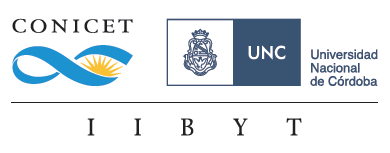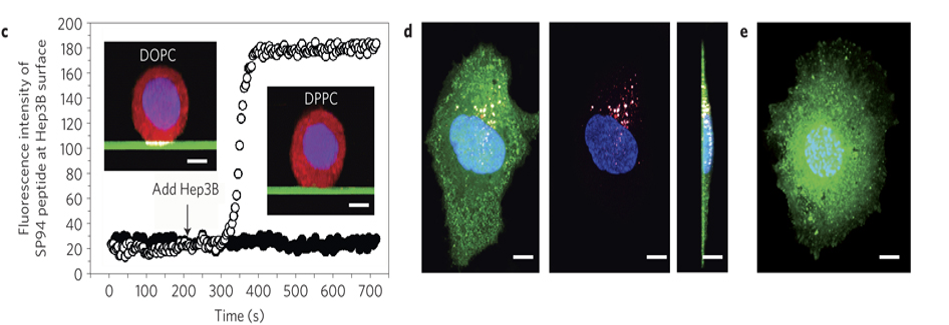Seminarios Semanales
Área Bioquímica y Biofísica Molecular.
Lunes 14 hs; Sala de Reuniones Depto.Química
16-05-2016
Disertante: Dra Ines Burgos
The targeted delivery of multicomponent cargos to cancer cells by nanoporous particle-supported lipid bilayers. Juewen Liu, Alison Stace-Naughton, Xingmao Jiang, and C. Jeffrey Brinker. Nature Materials 10, 389-397 2011.
Encapsulation of drugs within nanocarriers that selectively target malignant cells promises to mitigate side effects of conventional chemotherapy and to enable delivery of the unique drug combinations needed for personalized medicine. To realize this potential, however, targeted nanocarriers must simultaneously overcome multiple challenges, including specificity, stability and a high capacity for disparate cargos. Here we report porous nanoparticle-supported lipid bilayers (protocells) that synergistically combine properties of liposomes and nanoporous particles. Protocells modified with a targeting peptide that binds to human hepatocellular carcinoma exhibit a 10,000-fold greater affinity for human hepatocellular carcinoma than for hepatocytes, endothelial cells or immune cells. Furthermore, protocells can be loaded with combinations of therapeutic (drugs, small interfering RNA and toxins) and diagnostic (quantum dots) agents and modified to promote endosomal escape and nuclear accumulation of selected cargos. The enormous capacity of the high-surface-area nanoporous core combined with the enhanced targeting efficacy enabled by the fluid supported lipid bilayer enable a single protocell loaded with a drug cocktail to kill a drug-resistant human hepatocellular carcinoma cell, representing a 106-fold improvement over comparable liposomes.

